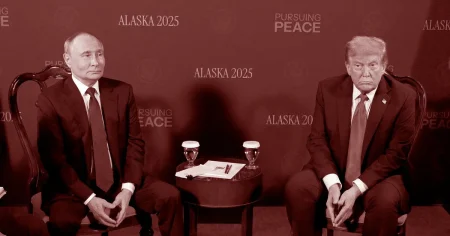In a recent column, Johan Croneman, a commentator for DN, expresses his deep skepticism toward global intelligence agencies, equating the CIA, GRU, Mossad, and others to ”genuine scoundrel organizations.” He asserts a similar lack of trust in Sweden’s security service, Säpo, suggesting that the nature of these agencies makes little distinction between protecting democracy and sustaining authoritarian regimes. This cynicism reflects a broader trend amongst some intellectuals who seem unfazed by the stark differences between democratic systems and dictatorial ones, often portraying a skewed perception where both are seen as equally flawed. The privilege of being able to make such sweeping generalizations about global security constituents is not lost on Croneman.
The disillusionment with democratic systems, as voiced by certain intellectuals, is particularly evident in the works of American writer Jamaica Kincaid. In her reflections post-US election, Kincaid ominously states that America has become akin to Russia, a claim that embodies a broader ideological stance among intellectual critics who find it unfashionable to acknowledge any inherent value in a flawed democracy. Croneman challenges Kincaid’s perspective by suggesting she should publicly critique the Russian regime with the same intensity she directs towards America. This challenge highlights the complexities and dangers of such equivalencies between democratic failings and the systematic oppression manifested in authoritarian regimes.
Despite the career risks faced by outspoken critics in oppressive environments, such as Russian writer Dmitry Glukhovsky and Belarusian activist Katsjaryna Andrejeva, Croneman points to a troubling lack of empathy among those who vilify the West. He urges Kincaid to connect with these dissidents, emphasizing that her experiences in Vermont are not truly comparable to the grave consequences faced by those in tyrannical states for voicing dissent. This disparity underlines a certain arrogance in the commentariat that belittles the risks taken by individuals fighting against regime tyranny.
Croneman emphasizes that while skepticism towards political leaders is warranted, it should not devolve into a nihilistic worldview that dismisses the comparative merits of democracy. He argues that Kincaid and others like her display a form of intellectual laziness, claiming profound insight while failing to recognize the real stakes involved in defending democratic principles. Such perspectives are not only dismissive of the struggles fought for democratic freedoms around the globe but, if left unchecked, could deter individuals from exercising their rights and standing up against encroachments on democracy.
Today, the trust in democratic institutions is exhibited as under strain amid the rise of polarization and political strife. Croneman warns against the normalizing of draconian measures, driven by fears of opposition, that may lead citizens to forego freedoms in an effort to prevent the ascendance of an adversarial political force. This environment, which is influenced by global security agencies often regarded with identical suspicion, risks diluting public engagement in promoting and protecting democratic tenets.
In conclusion, the potential for a regression to authoritarianism looms, particularly if the institutions that guard democratic processes – the media, judiciary, and electoral systems – take a backseat to political machinations. Croneman raises a critical alarm that succumbing to nihilism about democracy equates to a disservice to those who risk their lives for freedom. He posits that without a concrete defense of democracy against its critics, the ideological battles between freedom and oppression could very well eclipse the operational functions of democracy itself, suggesting a need for renewed commitment and vigilance towards safeguarding democratic values in the face of growing skepticism and disillusionment.














